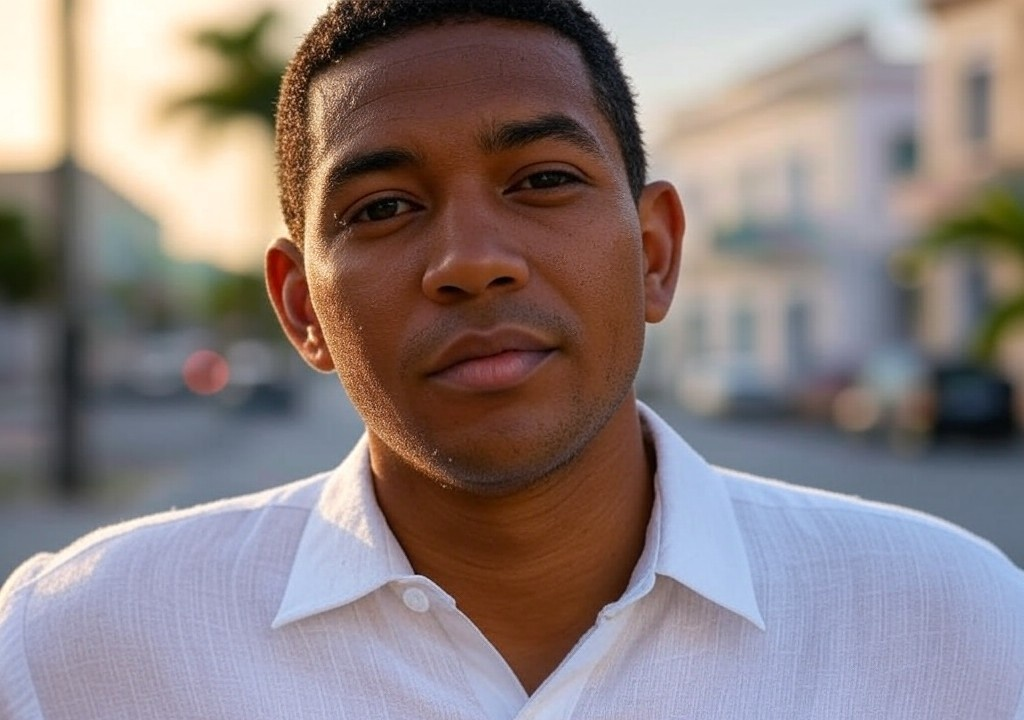What Scares Me the Most (and Why I Do It Anyway)
The Fear That Keeps Me Up at Night
I’ve faced down some pretty nerve-wracking moments in my life. Being the first kid in my family to leave home for college? Terrifying, but manageable. Presenting my short stories to a room of intimidatingly hip writers in Key West? Anxiety-inducing, but I lived to tell the tale. But there’s one fear that never goes away, no matter how often I confront it: vulnerability.
And I don’t mean vulnerability like cracking an awkward joke on a first date, hoping it lands, or confessing to someone that you low-key dream about adopting a dog together (even though you’ve only exchanged three texts). I’m talking about the kind of vulnerability that opens up a direct window to your raw, unfiltered self—the stuff no curated Instagram post or perfectly worded text message can disguise. Just typing about it makes my palms sweat.
But, here’s the thing: I do it anyway. And it’s not because I’m some fearless bungee jumper type (you will never see me willingly fling myself off a perfectly stable platform). It’s because every connection worth having—every relationship that’s ever knocked me sideways with its depth—was built on moments where I swallowed my pride, threw my armor in a metaphorical dumpster, and said, “Okay, this is me. Messy, flawed, real—take it or leave it.”
Spoiler alert: That doesn’t get easier with practice. But it does get worth it. Every time.
Cuban Bread Crumbs of Vulnerability
Growing up in Hialeah, my parents’ bakery was like a crash course in human connection. People didn’t just stop in for pastelitos or café con leche; they came to talk. My dad couldn’t hand someone a loaf of Cuban bread without also hearing about their heartbreak, their hopes, or why their cousin still hadn’t returned those Tupperware lids. I learned early on that listening—and being open—builds trust faster than the smell of croquetas wafting through the air.
But here’s the ironic twist: I could listen to anyone talk about their feelings until the cows came home (or until abuela started yelling at those same cows to move off her lawn). I wasn’t so great at sharing my own. Vulnerability, to my younger self, felt like a risk my unspectacular heart couldn’t afford. Sharing my fears? Asking for what I needed? Nope, that sounded like the emotional equivalent of walking into a bakery and asking for stale bread.
It wasn’t until I started writing seriously that I realized all the good things in life—love, connection, art—are made better, not worse, by vulnerability. You can’t love someone halfway. And your stories, whether told on paper or face-to-face, lack depth when they skip the messy stuff.
Lesson one: the only thing scarier than vulnerability is living your life without it.
Why Vulnerability Is the Emotional Equivalent of Karaoke
Have you ever done karaoke? If not, let me paint the picture: it’s Friday night, you’ve had just enough liquid confidence to think singing Livin’ on a Prayer at full volume is a good idea. You step up, grab the mic, and suddenly realize you’ve never felt more exposed in your life. The crowd is staring. You’re about to hit that key change. And you make one of two choices: botch it and run offstage, or belt it out with every ounce of lung power you’ve got, hoping someone, somewhere, claps for the effort.
Vulnerability feels just like that—but there’s no backing track or tequila to lean on when you’re explaining to someone why their words hurt, admitting you’re missing someone you pretended you were over, or telling your partner you love them first. It’s nerve-wracking. There’s no guarantee you’ll hit the right note.
But here’s the twist: most people don’t care if you’re pitch-perfect. They care that you stayed on stage and sang your heart out. Vulnerability can be awkward—it can be weird-level awkward—but the effort usually means more than the delivery. As someone who spent too many moments in my twenties trying to deliver perfect responses in imperfect situations, take it from me: just show up, messy emotions and all. Bravery isn’t about acing the performance; it’s about daring to face the music.
The Times I Got It Right (and Wrong)
Emotionally raw moments don’t come with neat outlines or practice drills. They usually show up when you least expect them, like a relative’s life advice at the family dinner table. Once, early in a relationship, I accidentally called someone “mi amor” in the middle of talking about empanadas. I panicked, of course, because who does that before the DTR conversation? But instead of brushing it off or playing it cool, I owned it. “Yup, I said that. Here’s why I feel this way.” That unpolished, awkward honesty was the start of one of the most meaningful relationships I’ve ever had.
But there have also been moments where I dropped the ball. Like, big time. I avoided hard conversations with people who mattered, scared of rejection or judgment. (Pro tip: silence isn’t the power move we think it is.) Or, I overcompensated and wore my heart on my sleeve with people who, frankly, weren’t interested in holding it—and ended up more drained than empowered.
What did those situations teach me? Timing is everything. Vulnerability isn’t about throwing your heart at someone’s feet and praying they don’t step on it. It’s about finding balance—sharing what’s real while protecting your worth.
The Why (Because There’s Always a Why)
So, why do I willingly tackle the fear of vulnerability head-on, over and over again, even though it makes me feel like a sweaty, exposed karaoke singer with a questionable vibrato?
Because vulnerability has brought me:
- Clarity: It’s impossible to build relationships—romantic, platonic, family, or otherwise—without truths. If you can’t show up fully, the connection won't either.
- Growth: Every time I’ve opened up, I’ve learned something about myself. Vulnerability strips away pretense and leaves you face-to-face with who you are—flaws, strengths, and all.
- Love in Every Color: The most amazing relationships of my life didn’t happen because I played it safe. They happened because I was willing to go there, even when going there meant risking rejection or heartbreak. (Plot twist: heartbreak stings less when you’re true to yourself.)
Some Tips for the Reluctantly Brave
Not sure how to start embracing vulnerability? You don’t need to start with “I love you” or confessing your deepest regrets. Try this instead:
1. Practice smaller moments of honesty: Instead of suppressing your “weird,” let it shine. Share your awkward hobby or admit you sometimes ugly cry during Pixar movies.
2. Ask for what you need: Whether it’s more affection, clarity in communication, or reassurance, owning your needs isn’t selfish—it’s brave.
3. Focus on progress, not perfection: Vulnerability should feel authentic, not rehearsed. Don’t try to script your emotions like a scene in a rom-com, and don’t beat yourself up if it doesn’t go as planned.
Closing Thoughts
Vulnerability is scary—and will probably remain scary for as long as we have hearts to protect and stories to tell. But here’s the secret most of us eventually learn: hiding from genuine connection is way more agonizing than showing up for it. It’s messy, emotional, and sometimes as cringe-worthy as my early karaoke attempts, but it’s also the only pathway to truly knowing yourself and those who matter to you.
So, yeah, vulnerability scares the hell out of me. But what scares me even more? Missing out on the incredible connections waiting on the other side of it.
Now, if you’ll excuse me, I’ve got some karaoke practice to get in—because Bon Jovi wasn’t wrong. We’re halfway there.




















